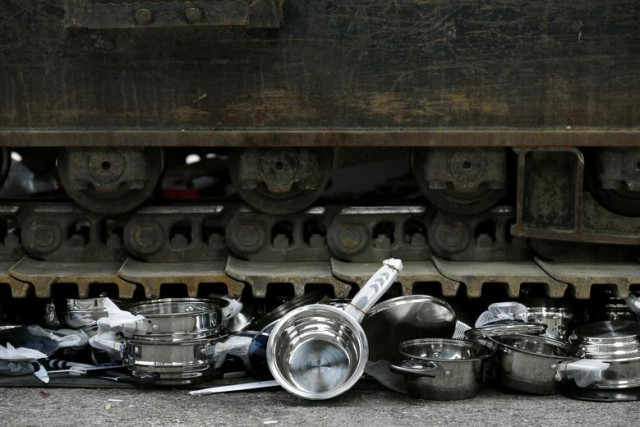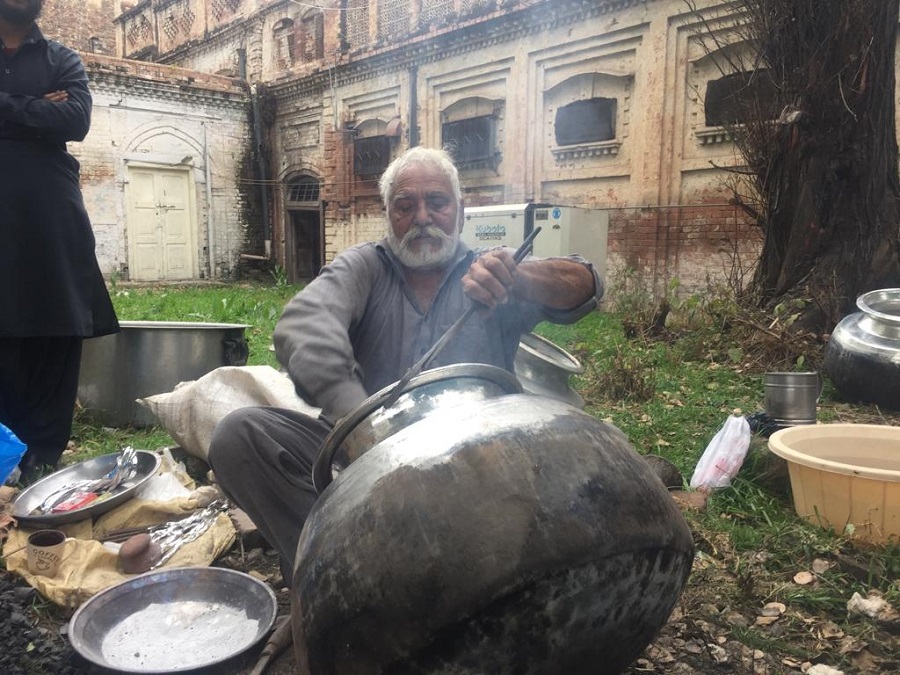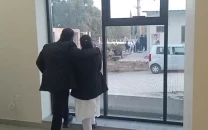Lost and forgotten: Kaliwalas and the dying tradition of metal polishing
Once popular copper and brass kitchenware has been replaced by disposable plastic and stainless steel utensils

A Reuters file photo.
Hearing the distant calls of the Kaliwala, housewives would stand at their doorsteps with their pots and pans waiting for the polisher to saunter into their neighbourhood. Often on a bicycle or lugging his equipment in a carryon, the hawker would provide enamelling, coating and polishing services for the utensils for a meagre sum.
Although with the popularisation of plastic, aluminium and steel the use of copper and brass utensils has been lost to time and once familiar calls of the Kaliwala may have faded into the realms of nostalgia, there are some who still value the tradition and give life to a dying custom. Fifty five year old Abdul Sattar from Sialkot is one of the few metal polishers in Pakistan, who still goes door to door and city to city singing the familiar notes of the Kailwala. “My clients hail from Lahore, Faisalabad, Multan, Rawalpindi, Sargodha, Swat, Peshawar, Haripur and other cities, so my work takes me across the country,” said the middle-aged man. “I get most of my work through verbal references and phone call bookings but ideally, I want to take my business and services online and set up an office in my hometown. However, none of my children are educated and I don’t understand the internet either,” he added.

Today, the cost of varnishing a household pot can range between Rs1500-2000, whereas a one kilogram cauldron can cost up to Rs6,300. Varnishing requires the use of caustic soda and other chemicals, which can prove harmful for the health if inhaled.
“At first, I hated my work and the dust would irritate my eyes but over the years, I have grown to love what I do. However, the introduction of modern kitchenware has been a severe blow to my profession and the only people who contact me anymore are marriage halls, professional caterers and some veteran clients who value the tradition enough to help keep it alive,” Sattar told The Express Tribune.
According to Sattar, there aren’t many Kaliwalas left who still go from door-to-door in neighbourhoods and the people who still use copper and brass utensils have no option but to take their utensils to the market and find an outlet which would readily polish, coat or enamel their kitchenware. “My teacher owned two shops in the main bazaar of Sialkot and affluent families would flock the shops to get their utensils varnished but the only people who visit anymore are a few old customers from time to time.”
Those who still use metal utensils claim there are several benefits to using copper kitchenware, including improved immune system, better digestion and improved thyroid health. “But unlike modern-day disposable kitchenware, brass and copper utensils can last for generations and those who use them treasure their utensils and routinely get them varnished and enamelled to keep them looking fresh.”



















COMMENTS
Comments are moderated and generally will be posted if they are on-topic and not abusive.
For more information, please see our Comments FAQ